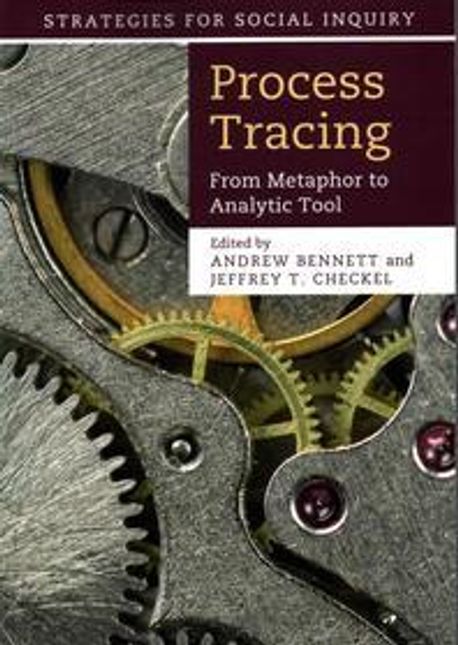
Process tracing : from metaphor to analytic tool
- 서명/저자사항
- Process tracing : from metaphor to analytic tool
- 개인저자
- Bennett, Andrew 1960- | Checkel, Jeffrey T. 1959-
- 발행사항
- Cambridge ; New York : Cambridge University Press, 2015.
- 형태사항
- xiii, 329 p. : ill. ; 25 cm.
- ISBN
- 9781107686373
- 주기사항
- Includes bibliographical references (p. 299-319) and index
소장정보
| 위치 | 등록번호 | 청구기호 / 출력 | 상태 | 반납예정일 |
|---|---|---|---|---|
이용 가능 (1) | ||||
| 자료실 | WM021111 | 대출가능 | - | |
- 등록번호
- WM021111
- 상태/반납예정일
- 대출가능
- -
- 위치/청구기호(출력)
- 자료실
책 소개
This book provides empirically grounded conceptual, design and practical advice on conducting process tracing, a key method of qualitative research.
목차
Preface; Part I. Introduction: 1. Process tracing: from philosophical roots to best practices Andrew Bennett and Jeffrey T. Checkel; Part II. Process Tracing in Action: 2. Process tracing the effects of ideas Alan M. Jacobs; 3. Mechanisms, process, and the study of international institutions Jeffrey T. Checkel; 4. Efficient process tracing: analyzing the causal mechanisms of European integration Frank Schimmelfennig; 5. What makes process tracing good? Causal mechanisms, causal inference, and the completeness standard in comparative politics David Waldner; 6. Explaining the Cold War's end: process tracing all the way down? Matthew Evangelista; 7. Process tracing, causal inference, and civil war Jason Lyall; Part III. Extensions, Controversies, and Conclusions: 8. Improving process tracing: the case of multi-method research Thad Dunning; 9. Practice tracing Vincent Pouliot; 10. Beyond metaphors: standards, theory, and the 'where next' for process tracing Jeffrey T. Checkel and Andrew Bennett; Appendix. Disciplining our conjectures: systematizing process tracing with Bayesian analysis.
